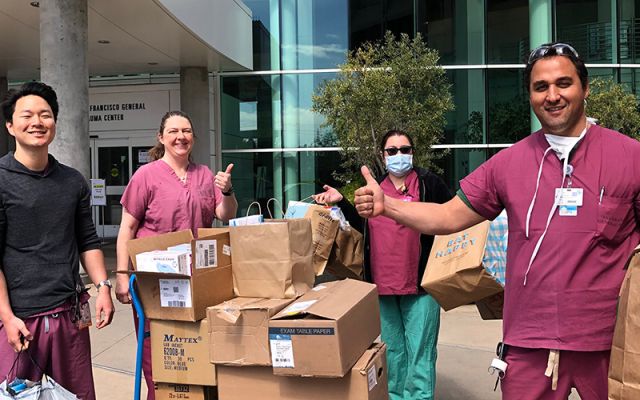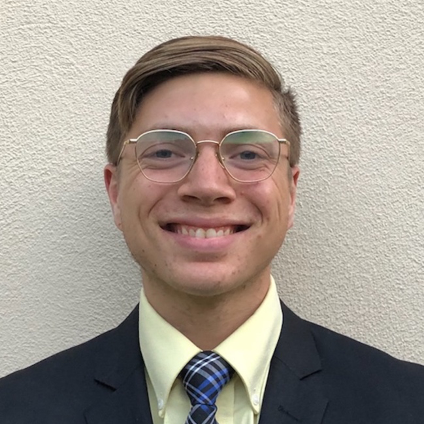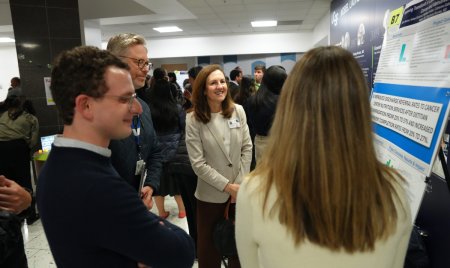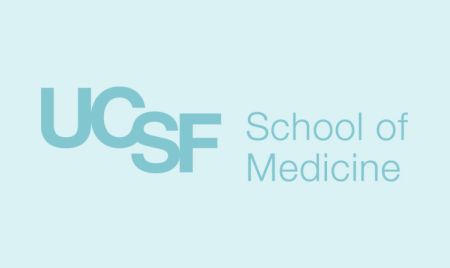Navigating the COVID Crisis as a First Year Medical Student

UCSF health care workers receive a donation of personal protective equipment from medical students
Seeing the immense sacrifice of physicians, nurses, medical staff, and other people working to get those most vulnerable through COVID-19 has reminded me why I want to be a physician. Health professionals, for instance, have put their personal health at risk to care for patients. They have inspired countless stories of immense compassion through these trying times. I am incredibly grateful and eager to make such a direct impact.
Despite my eagerness to be in the hospital serving patients, I accept that as a first-year medical student, I have a different role to play in alleviating this crisis. While I wish I could do more to directly help those suffering from the disease, I know that first year medical students can make our own contributions through learning, volunteering and educating friends, family and the public.
Despite my eagerness to be in the hospital serving patients, I accept that as a first-year medical student, I have a different role to play in alleviating this crisis. While I wish I could do more to directly help those suffering from the disease, I know that first year medical students can make our own contributions through learning, volunteering and educating friends, family and the public.
Daniel Cummins
Medical student
In March, our curriculum and tests were moved to an entirely virtual environment, but it didn’t mean we were absent from COVID-19 response efforts. Many of my classmates have used this time in inspiring ways. UCSF students collected 14,000 masks over one weekend for hospitals in short-supply, vital to containing the transmission of COVID-19 between patients and healthcare workers. To address a critical shortage of blood products, they have organized two blood drives in collaboration with Vitalant, a local blood collection agency. Some classmates have developed widely-accessible health literacy materials in various languages and developed educational videos on the virus. Other classmates have provided emergency childcare services for the health care workforce, provided grocery delivery services via Meals on Wheels, and participated in virtual and phone social visits with seniors at various community senior assisted living centers.
Another part of our role in the COVID crisis is undoubtedly doing what we can to educate family, friends, and the public about proper responses and disseminating accurate information around COVID-19 (I know many people personally who believe false information or are skeptical of the virus’s seriousness).
The School of Medicine has also done an incredible job adjusting our curriculum to be remote despite rapid changes. Several of our small group sessions have transitioned to Zoom—allowing us to remain engaged with new material and maintain the strong cohesion we have built as a class over the past few months, even while physically separated. Faculty have incorporated the systemic and epidemiological factors of COVID-19 into our foundational science curriculum as it evolves by the day, while many work at the same time to treat patients or manage other challenges related to COVID-19.
To be able to serve future patients in need—whether during a pandemic or not—I must stay invested in my medical education. Despite the difficulty of learning or collaborating through a screen, that screen will be gone before we know it. In a year, we will be a part of patient care on clerkships. In slightly more time, we will be the ones responsible for treating patients with conditions such as COVID-19 as physicians. We will be confused and unsure at times, but we will also sacrifice and be resilient despite difficulty—much as medical providers are doing right now during COVID-19. We will do so for our patients. I am taking this situation as a reminder that we are still in training, and the sacrifices we make now are for our future patients. While we can best serve patients now largely by distancing ourselves, we will soon be in front of patients in need of our knowledge and expertise. I am excited and inspired to work toward that knowledge during this difficult time and look forward to a time when I can serve that patient in need.

Daniel Cummins is a first-year medical student at UCSF. Daniel graduated in 2019 from the University of Southern California with a degree in biomedical engineering. His passions include biomedical research and writing. In the future, he hopes to work in patient care and research as a physician-scientist.









